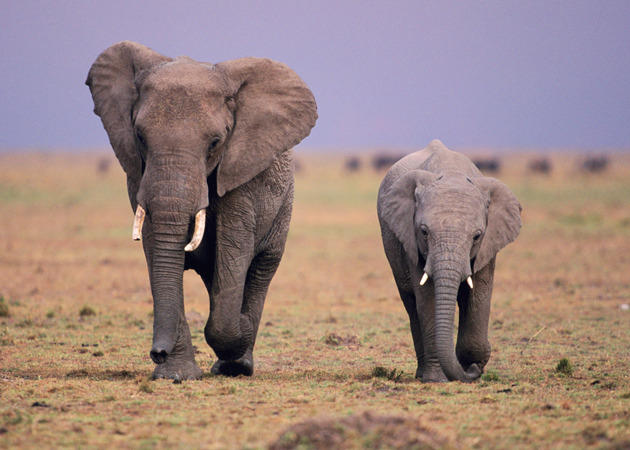Bad news from the Democratic Republic of Congo: Over the past two months rangers have discovered the remains of 68 elephants in Garamba National Park, the result of aggressive poaching by armed militants and paramilitary forces.
The Associated Press reports that the poachers are comprised of renegade Congolese soldiers, gunmen from neighboring countries, and members of the extremist group The Lord’s Resistance Army, all of which seek the elephants’ valuable tusks to help fund their operations.
From the AP (fair warning: it’s graphic):
One group is shooting the elephants with rifles from a helicopter and then taking off their tusks with a chainsaw. They are removing the elephants’ brains and genitals as well.
Conservationists say a thriving ivory market in Asia is helping fuel the worst poaching epidemic of African elephants in decades.
In some cases the attacks in Garamba seem to be indiscriminate, killing baby elephants that do not yet possess the valuable ivory tusks.
Congolese authorities struggle protecting elephant herds from poachers given the vast size of Garamba National Park, which covers roughly 3,000 square miles, as Daily Mail notes.
It’s no secret that poaching has long plagued Africa and its native wildlife. Elephant populations, in particular, have dwindled over the years; according to the Enough Project, poachers can trade a single elephant tusk for 18,000 rounds of ammunition or between $14,000 and $125,000, though some reports suggest even higher figures.
For years big-game hunters and conservationists have argued that thorough wildlife management, based on systems such as the North American Model of Conservation, could help revive the African elephant, but killings such as that in the Congo undoubtedly hinder such efforts.
There’s good news, though: In light of recent incidents, the director of the International Fund for Animal Welfare released a statement that said countries such as Chad, Cameroon, and the Democratic Republic of Congo are now working with international law-enforcement agencies more closely than ever before to curb poaching and seize stockpiles of illegally harvested ivory.
Elephant hunting and the ivory trade remain a contested topic in the US, after the government proposed new bans and restrictions on the exchange and sale of ivory in 2014.
Read the AP’s full story on the incident and see photos from it here. —The Editors
Cover image: Thinkstock

